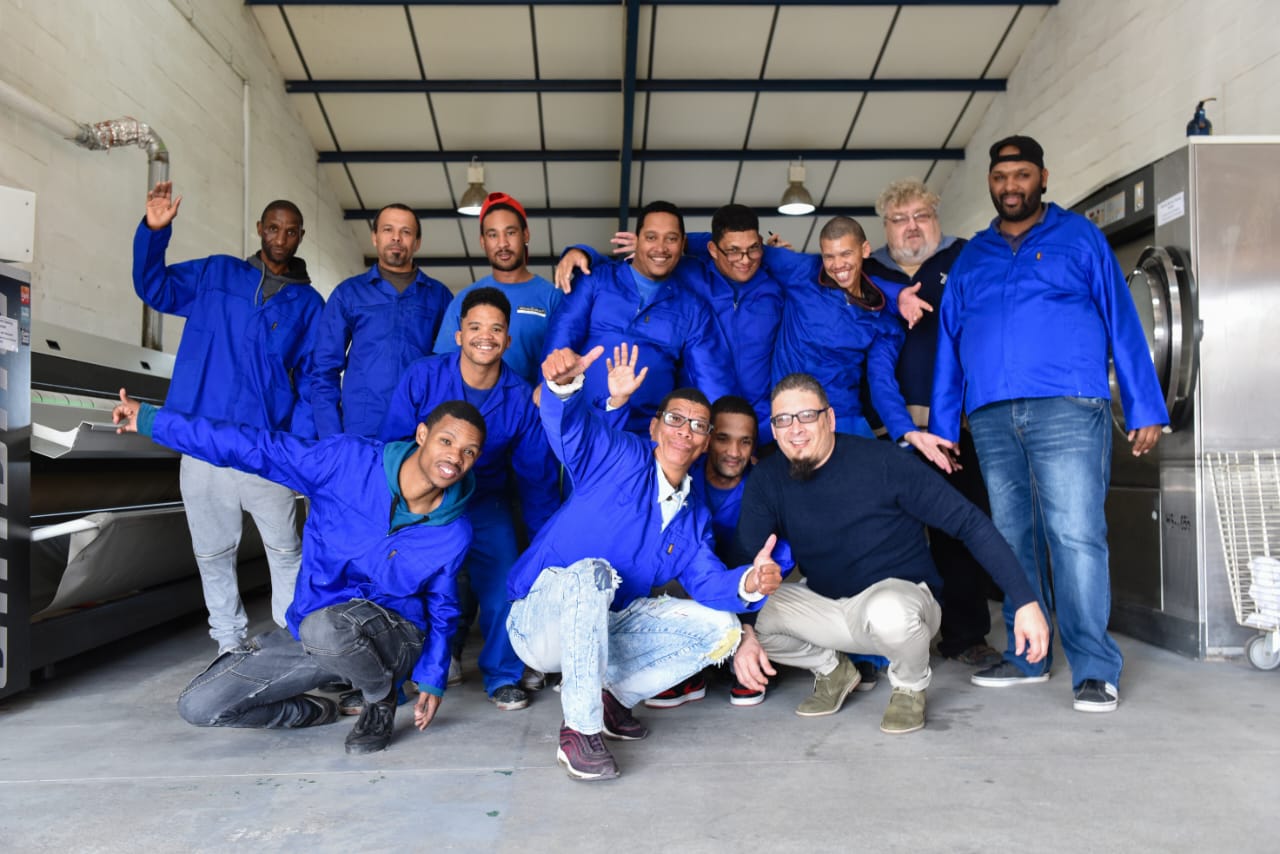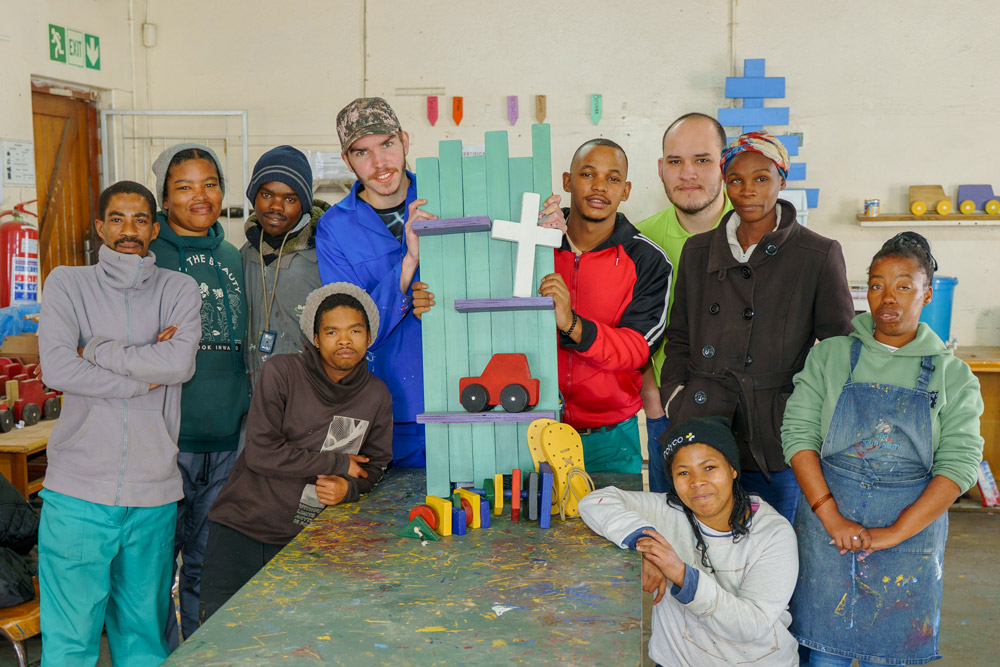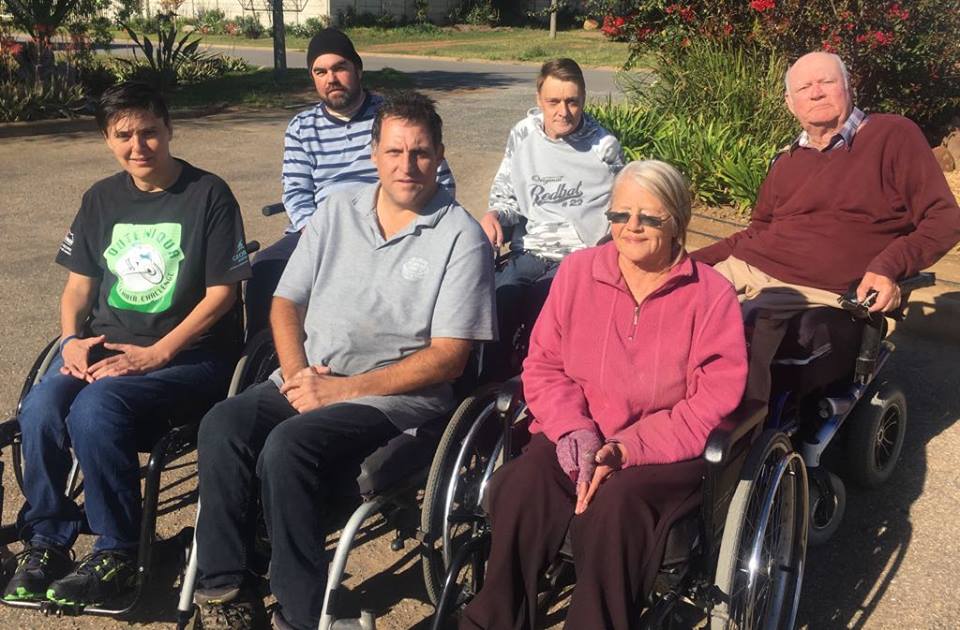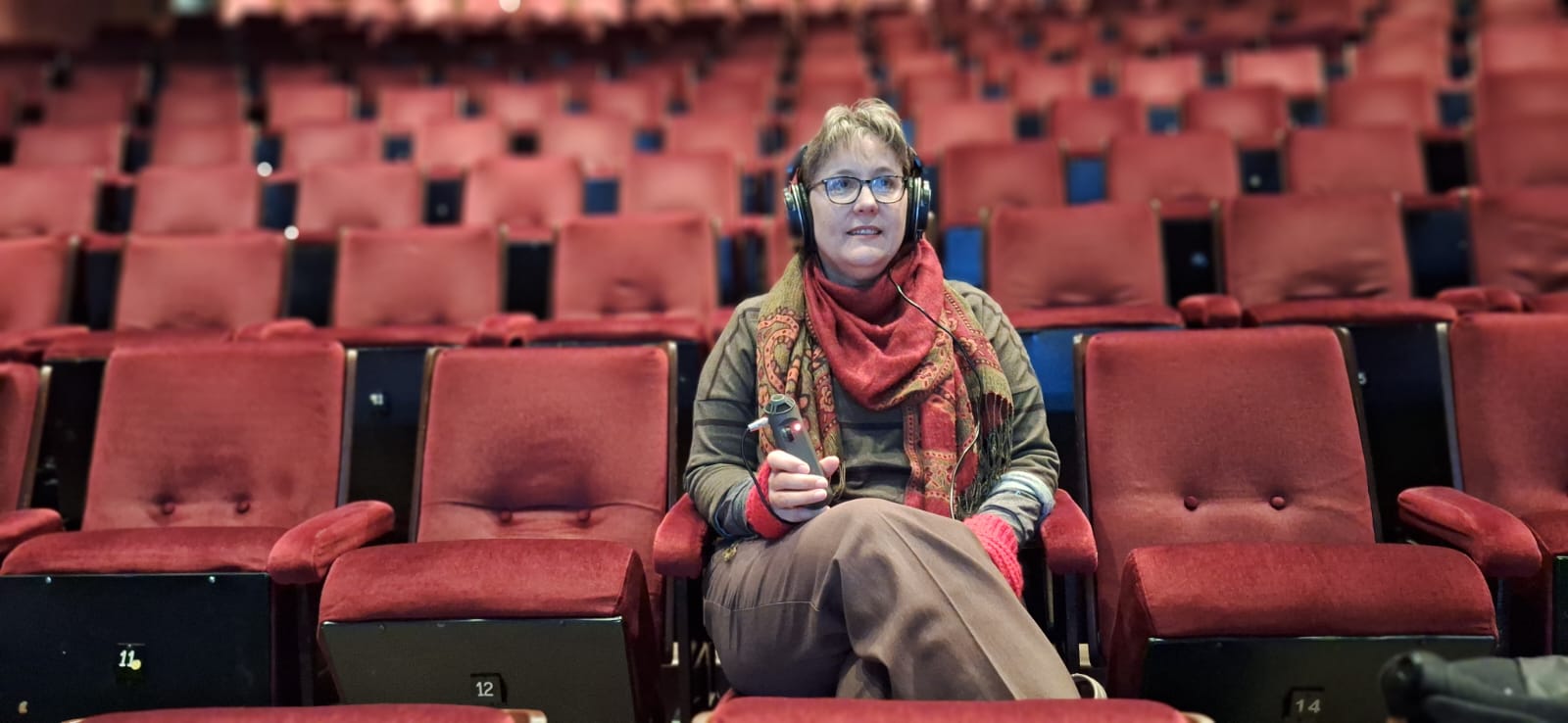Our Projects and Programmes
Work and Employment

Western Cape APD recognises the transformative impact of meaningful vocational participation in empowering persons with disabilities economically, fostering their independence and community integration. Despite strides in various areas, access to skills development and employment remains severely limited for individuals with disabilities, particularly those with intellectual disabilities, hindering their full integration into South Africa’s socio-economic fabric. This exclusion leads to heightened economic dependency and social marginalisation, perpetuated by stigma and misconceptions. Through our Work and Employment Programme, WCAPD endeavours to enhance the capacity of APD branches and service providers, facilitating accessible and inclusive opportunities for individuals with disabilities to realise their full work potential, enter the open labour market, establish entrepreneurial ventures, thrive within skills and work centres, or engage in community-based activity groups.
Our work and employment interventions include:
Adult Inclusion Screening Tool (AIST)
Our Adult Inclusion Screening Tool (AIST) plays a vital role in assessing individuals with disabilities for participation in either a Skills and Work Centre (SWC) or an Adult Day Care Programme. The primary focus in designing and developing the AIST was to ensure that clients not only benefit from, but also contribute to, SWCs and the mainstream economy.
Safety was a critical consideration, ensuring that clients attending a SWC are not placed in harm’s way. This means that clients must be able to complete some basic Activities of Daily Living (ADL) tasks independently and be mobile, even if it requires an assistive device. Unlike adult care centres, SWCs do not have assistants available to help clients with mobility or ADL tasks such as eating, drinking, and toilet routines. Therefore, clients needing such assistance do not qualify for SWCs, as their inclusion could create safety risks.
It’s important to distinguish between assistants and supervisors within the SWC context. An assistant is someone who helps a client with tasks they cannot complete independently, whereas a supervisor oversees the client’s work, ensuring quality and providing guidance, but the client can perform the tasks independently.
CASE STUDY
From Learner to Leader: Neville’s Transformative Journey at Oliftantsrivier APD
Project: Skills and Work Centre, Woodwork Group, Vredendal
Organisation: Olifantsrivier Association for Persons with Disabilities
In the heart of Vredendal, the Olifantsrivier Association for Persons with Disabilities is changing lives through its Skills and Work Centre, a woodwork project designed to empower youth with disabilities aged 18 to 35. This initiative is more than a training programme; it’s a pathway to independence, inclusion, and leadership. Twice a week, ten participants gather to learn the art and business of woodwork from design and production to marketing and sales.
The project is rooted in Western Cape APD’s commitment to building capacity, boosting self-esteem, and preparing individuals for meaningful participation in society.
A Defining Moment
In May 2025, the project faced a significant transition. Willem Jansen-Van Rensburg, the workshop co-ordinator whose mentorship had shaped the group’s success, accepted a permanent job opportunity. His departure left a leadership gap, but also revealed the strength of the systems and people in place.
Thanks to Willem’s intentional mentorship and the strategic use of the Adult Inclusion Screening Tool (AIST), one participant stood out as ready to step up into the interim role of co-ordinator while a permanent placement was being sought: Neville Van Der Heever.
Neville, a beneficiary of the programme, had been identified through the AIST as having strong leadership potential. Willem had nurtured this potential, equipping Neville with the skills to work independently, think critically, and support his peers. When Willem stepped away, Neville stepped forward.
Why This Matters
Neville’s journey from learner to leader is a testament to the transformative power of Western Cape APD’s programmes. It reflects the organisation’s strategic approach to inclusion, its commitment to capacity-building, and its belief in the potential of every individual.
This case study confirms that when youth with disabilities are given the right tools, mentorship, and opportunities, they don’t just participate, they lead.
At Western Cape APD and our branches, we don’t just create programmes. We cultivate possibility. And who knows, with a few more years of experience and continued support, Neville may one day be more than ready to formally step into the very role he so carefully care-took during this time of transition
Empowering Inclusion, Enhancing Lives






